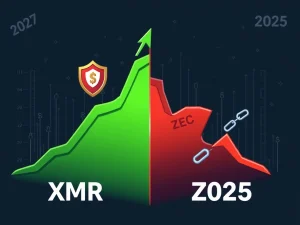HKMA’s Stablecoin Licensing Framework: Only Single-Digit Licenses to Reshape Hong Kong’s Crypto Future

Hong Kong is taking a bold step toward regulating stablecoins, with the HKMA set to issue just a handful of licenses by the end of 2025. This move could dramatically reshape the region’s cryptocurrency landscape—here’s what you need to know.
HKMA Stablecoin Licensing: What’s Changing?
The Hong Kong Monetary Authority (HKMA) has introduced a groundbreaking framework for stablecoin issuers. Key documents include:
- Licensed Stablecoin Issuer Regulatory Guidance
- Stablecoin Issuer Licensing Regime Summary Description
These take effect August 1, with applications due by September 30.
Why Stablecoin Regulation Matters for Hong Kong
Hong Kong aims to balance innovation with stability through this framework. The limited licenses create:
| Opportunity | Challenge |
|---|---|
| Market leadership for licensees | High barriers to entry |
| Clear regulatory path | Intense competition |
Who Might Get Hong Kong’s First Stablecoin Licenses?
While CITIC Securities didn’t name candidates, likely contenders include:
- Institutions in HKMA sandbox programs
- Major banks with digital asset divisions
- Established crypto platforms with strong compliance
The Global Context of Digital Asset Oversight
Hong Kong’s approach mirrors global trends, with emphasis on:
- AML compliance
- Operational resilience
- Risk management frameworks
This strategic licensing move positions Hong Kong as a potential hub for responsible crypto innovation, but success depends on practical implementation and licensee performance.
FAQs
When will HKMA issue stablecoin licenses?
The first licenses are expected by year-end 2025.
How many licenses will be issued?
Only single-digit licenses will be allocated initially.
What are the key requirements for applicants?
Focus areas include AML compliance, risk management, and operational resilience.
Can international companies apply?
Yes, the framework appears open to both local and international applicants meeting requirements.
How does this compare to other jurisdictions?
Hong Kong’s approach is similar to Singapore and Japan, with rigorous oversight but clear pathways.









